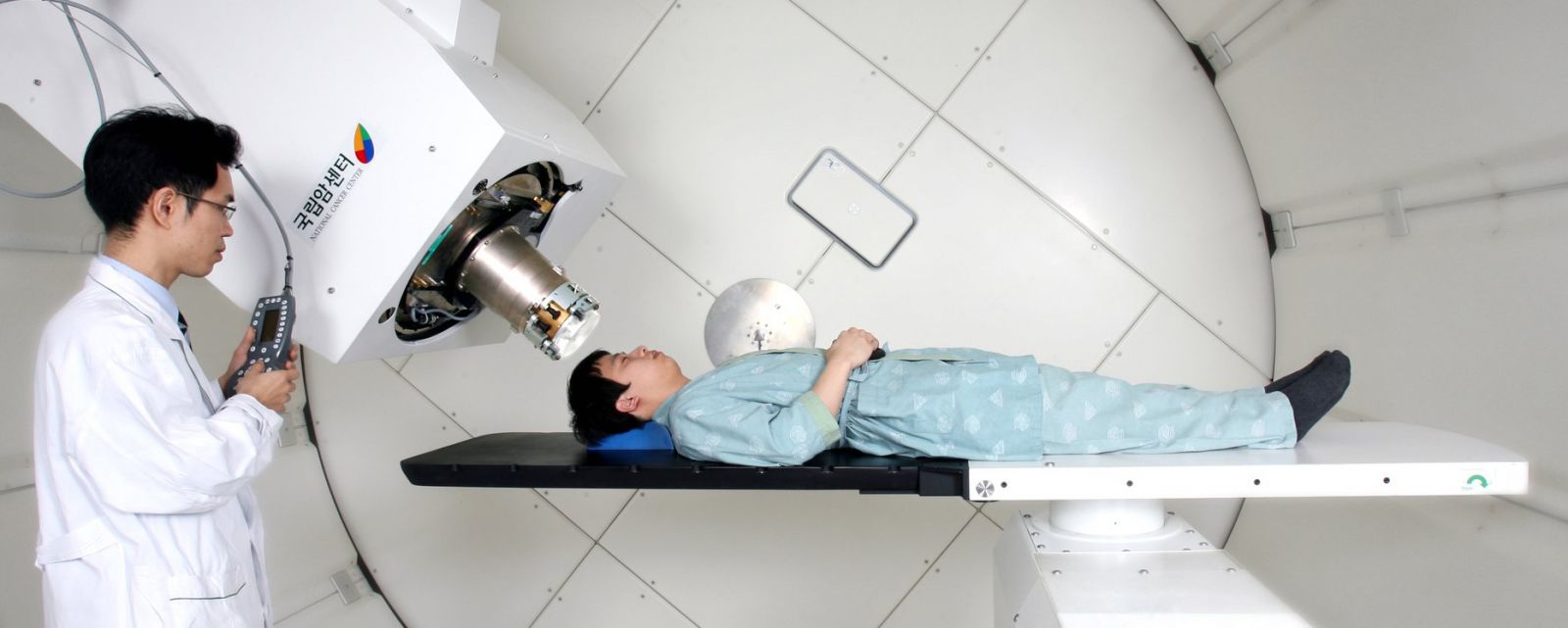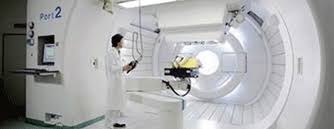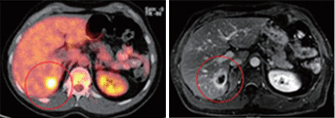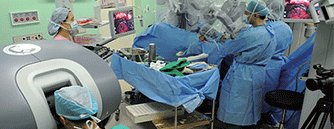Cancer
Korea is one of the top countries in cancer treatment due to performing the most complex operations and researching cancer studies. Owing to tremendous national efforts to eradicate cancer, the overall 5-year survival rate for cancer patients treated in Korea has been steadily increasing and was up to 64.1% most recently. Medical services provided by Korean hospitals are now competing with the world's best hospitals in all aspects including healthcare system, facilities as well as treatment options.
Five-Year Cancer Survival Rates: International Comparison (% survival rate after 5 years)
|
Cancer Type |
Korea1 ('10-14) |
USA2 ('06-12) |
Canada3 ('06-'08) |
Japan4 ('06-'08) |
|
All Cancer |
70.3 |
69.0 |
63.0 |
62.1 |
|
Thyroid |
100.2 |
98.3 |
98 |
93.7 |
|
Stomach |
74.4 |
31.1 |
25 |
64.6 |
|
Colorectal |
76.3 |
66.2 |
64 |
71.1 |
|
Lung |
25.1 |
18.7 |
17 |
31.9 |
|
Liver |
32.8 |
18.1 |
19 |
32.6 |
|
Breast |
92.0 |
9-.8 |
87 |
91.1 |
|
Prostate |
93.3 |
99.3 |
95 |
97.5 |
|
Pancreatic |
10.1 |
8.5 |
8 |
7.7 |
|
Cervical |
79.7 |
68.8 |
73 |
73.4 |
Источники:
- National Cancer Information Center, December 2016
- Howlander N, et al. SEER Cancer Statistics Review, 1975-2013, National Cancer Institute, Bethesda, MD. http://seer.cancer.gov/csr/1975_2013/, based on November 2015 SEER data submission, posted to the SEER website, April 2016
- Canadian Cancer Society, Statistics Canada and Provincial/Territorial Cancer Registry. Canadian Cancer Statistics 2016
- Center for Cancer Control and Information Cervices, National Cancer Center, Monitoring of Cancer Incidence in Japan – Survival 2006-2008 report 2016
The most advanced medical technology Korea

Korea provides a high-quality medical services by utilizing state-of-the-art equipment for cancer treatment in order to promote trust in the treatment and improve the quality of life with the objective of "living a normal life during precision cancer treatment with minimum side effects “.
 Proton Therapy. The protons from radiation selectively attack cancer cells to minimize normal-tissue damage and
Proton Therapy. The protons from radiation selectively attack cancer cells to minimize normal-tissue damage and
harmful side effects. This novel therapy is only available at Korea's National Cancer Center as well as 28
other hospitals in the world.
Moreover, the number of international cancer patients travelling to Korea
has been increasing since the treatment fees in Korea are as low as one-fifth of those in the USA.

Cyberknife. The most advanced medical device selectively tracks and removes cancerous tissues without
surgical operation, taking organ movement and breathing of the patient into consideration.
The cost of this treatment in Korea is one-third of that in the USA.
 Da Vinci Surgery. The use of this minimally-invasive robotic surgery is flourishing in Korea. Consequently,
Da Vinci Surgery. The use of this minimally-invasive robotic surgery is flourishing in Korea. Consequently,
Korea has earned a reputation as the "Mecca" of robotic surgery in the world.
Furthermore, Korean
hospitals run robotic surgery training centers where a large number of doctors across the world visit
annually to observe technological advancements.
Unparalleled cancer care process and infrastructure

Korean Cancer Centers lead the world in terms of their top-tier infrastructure for patient care and individually tailored cancer treatment approach, building optimal cancer care delivery systems, driving international cooperation and sharing advanced medical technologies via training programs.
.jpg) Cancer Center
Cancer Center
We reorganized our cancer care system to be more disease-centered by establishing cancer centers so
that all relevant faculties of departments are involved in making treatment prompt decisions.
The center provides one-stop system of full support for prevention, examination, treatment,
rehabilitation and aftercare. In Korea, most university hospitals and high-level general hospitals
including government-designated 12 local cancer centers provide the world's top cancer treatments.
 Multidisciplinary Approach
Multidisciplinary Approach
Our world-renowned multidisciplinary care teams of medical oncologists, radiation therapists and other cancer specialists work closely together under one roof to provide truly dedicated cancer treatments..
Fast Track System
When a patient is diagnosed with cancer or is referred from cooperating community hospitals, a multidisciplinary team from the cancer center confirms the examination results, verifies the patient's status, plans the treatment, arranges for additional examinations if needed. The team admits to initiate the treatment within 1 to 2 weeks depending on the status of the patient and the waiting time is considerably reduced this way.